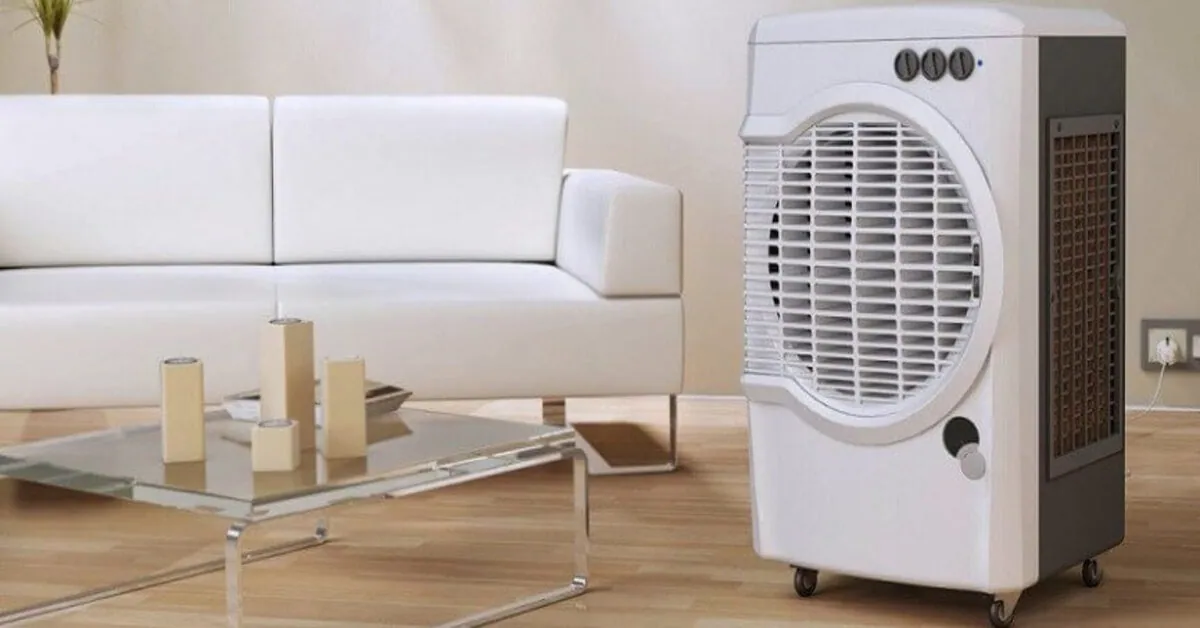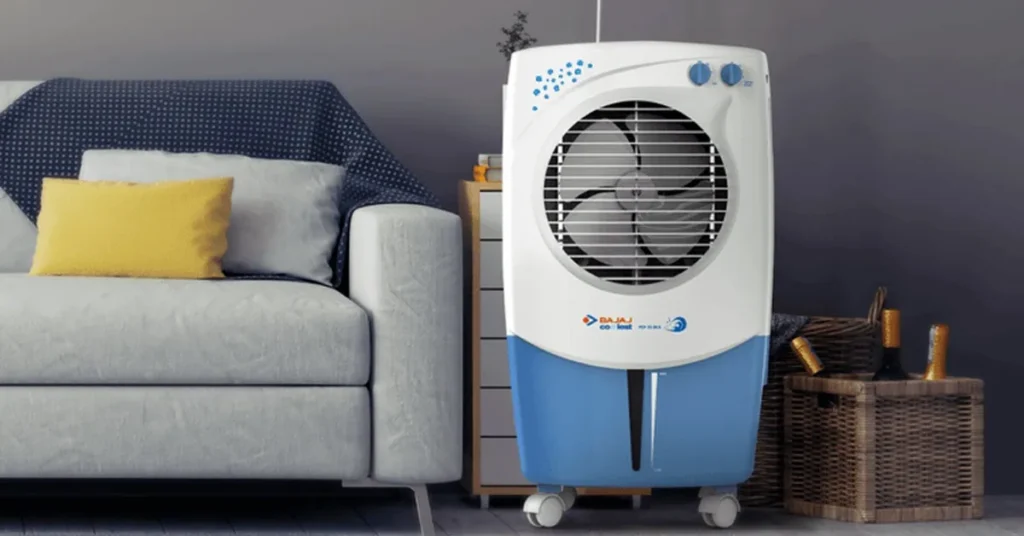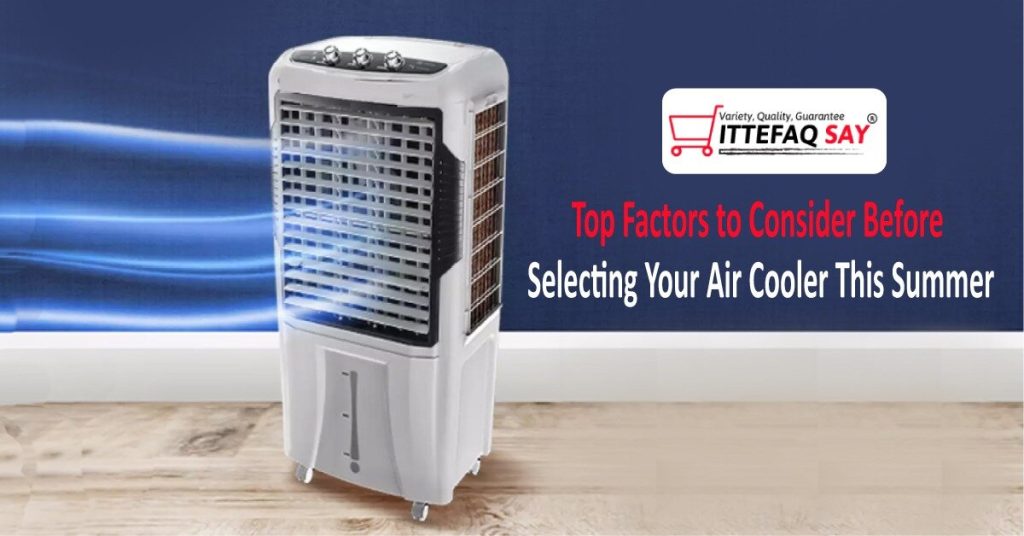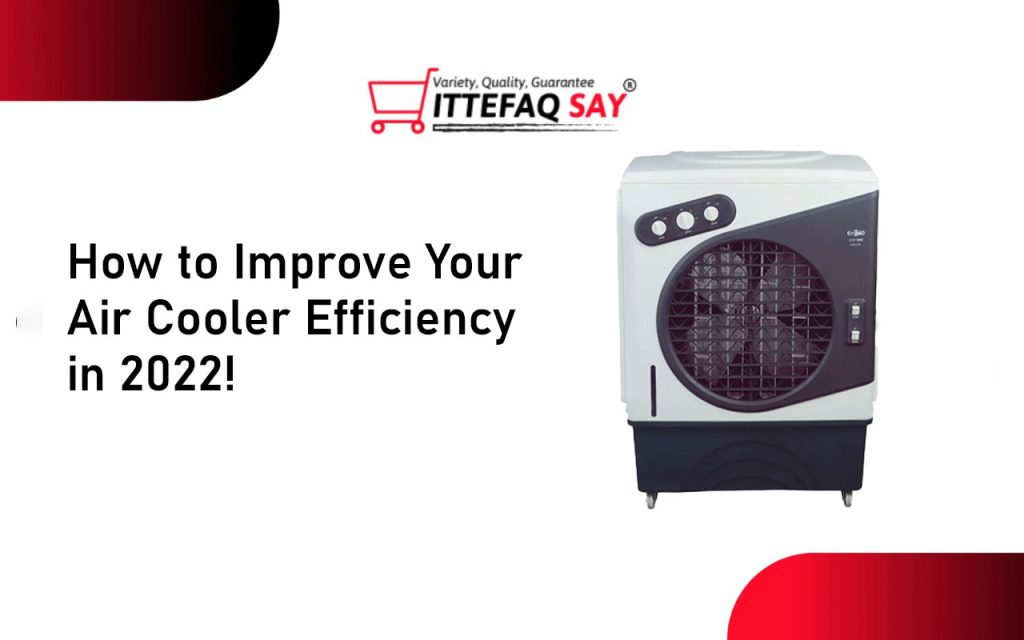Choosing the Right Air Cooler for Your Needs

Air coolers are a popular and cost-effective way to beat the heat, especially in regions with hot, dry summers. They may significantly decrease interior temperatures and provide an environmentally beneficial alternative for standard air conditioners. However, selecting the best air cooler might be difficult due to the wide range of models and types on the market. To make sure you choose the ideal one for your purposes, take into account the following important factors.
Room Size
The first thing to think about is how big the room is that you wish to cool. The cooling capacity of air coolers are expressed in cubic feet per minute (CFM) and vary in size. To ensure effective cooling, measure the size of your room and select an air cooler with the right CFM rating.
Climate
Consider the climate of your region. Low humidity conditions and dry, arid areas are ideal for air conditioner performance. An air conditioner might be a better choice if you live in a humid area as an air cooler might not be as efficient there.
Types of Air Coolers
Personal Air Coolers
These smaller units are perfect for tiny spaces like offices or bedrooms because they can only chill a small area.
Tower Air Coolers
More airflow and coverage than personal coolers, these tall, stylish devices are ideal for medium-sized rooms.
Window Air Coolers
These stronger coolers, which are mounted in windows, may chill larger rooms, such living rooms or open-concept layouts.
Ducted Air Coolers
Perfect for bigger homes or business settings, ducted coolers evenly chill several rooms by distributing cooled air through ducts.
Water Tank Capacity
This refers to the amount of water the air cooler can hold at one time. Longer operating times between refills are possible with greater capacity water tanks. This is especially helpful if you desire without interruption, continual cooling. It’s important to remember, though, that a larger tank may also result into a heavier and bulkier cooler.
Power Consumption
The quantity of electrical energy required for the air cooler to operate is referred to as power consumption. Energy efficient air coolers are made to use less energy without sacrificing cooling performance. Seek for versions that come equipped with features like variable speed settings, which let you change the fan speed to suit your needs for cooling. Another energy-saving feature is a timer, which allows you to program when the cooler runs, cutting down on wasteful use.
Noise Level
An air cooler’s noise level, expressed in decibels (dB), describes how loud the device is when it’s operating. Certain air coolers can make a lot of noise, particularly when the fan speed is increased. Seek for products with a lower noise level rating if you want a more peaceful setting. Because of their silent operation, these coolers are appropriate for use in offices, bedrooms, and other locations where noise pollution may be an issue.
Additional Features
Remote Control: Allows you to adjust settings from a distance.
Timer Function: Lets you schedule cooling periods for energy efficiency.
Air Purification: To eliminate smells, dust, and pollen from the air, some air coolers have built-in filters.
Portability: Take into account the air cooler’s weight and movement, particularly if you intend to transfer it between rooms regularly.
Brand Reputation and Warranty
Select air coolers from reliable, well-known manufacturers that have a solid track record of excellence. Verify the warranty conditions to make sure any possible problems are covered.
Budget
Lastly, consider your budget. Although air coolers are often less expensive than air conditioners, their price might differ depending on the model and amenities. To strike a balance between performance and cost, compare features and prices.
Last Note
Selecting the right air cooler involves assessing factors such as room size, climate, type of cooler, water tank capacity, energy efficiency, noise level, additional features, brand reputation, warranty, and budget. You may make an informed choice and take advantage of cool, cozy interior spaces during hot weather by taking these factors into account.





